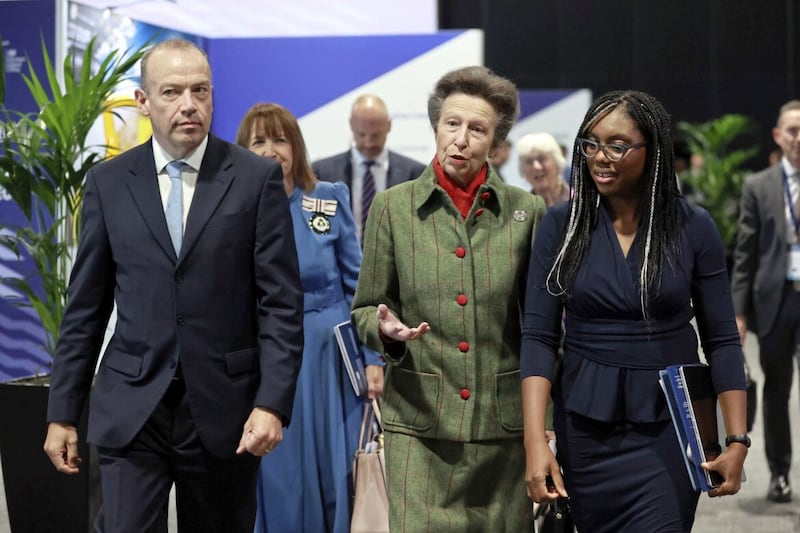CHANCELLOR Jeremy Hunt’s decision to cut national insurance rates in the Autumn Statement will help workers in Northern Ireland still suffering from high mortgages, food and energy bills. And businesses were boosted after ‘full expensing’ was made permanent, which is something CBI NI has long campaigned for.?
Full expensing creates a stable tax incentive system for firms – it gives them the much-needed certainty for their investment plans. Being able to write off 100% of tax on certain types of plant or machinery in the first year will be a game-changer for growth acceleration and improve living standards across Northern Ireland.? The CBI economics team had previously demonstrated to HM Treasury that full expensing could boost UK-wide investment by 21%, and be worth up to 2% to GDP, by the start of the next decade.
I’m looking forward to finding out how local firms will be making the most of this incentive to upgrade existing machinery, buy new equipment or build new production lines.?Other sectors such as retail have been keen to point out that the measure will help them adopt new technologies and switch automation. The service sector will also receive support to upgrade technology.
It will be interesting to see the impact of the national insurance cut from 12% to 10% on consumer spending in the new year. With a little more money in their pockets, this might have an impact on consumer confidence and spending.
Local businesses should also benefit from the announcement that the R&D tax scheme will be merged. This measure will provide further clarity for R&D tax claims in Northern Ireland, boosting start-ups at a critical stage when they need cash, and should benefit innovation and tech firms.
It was also interesting to see Jeremy Hunt’s plans to improve the UK’s national grid connectivity and speed up planning processes.?These improvements are necessary to build the infrastructure required to absorb the power demands that electric vehicles and other net zero projects will place on the system over the next decade.? These policy areas are also critical to investment and economic growth in Northern Ireland – but they are devolved issues.
Thus, the autumn statement was a stark reminder that while England, Scotland and Wales are working to remove the barriers to energy and net zero investments, in Northern Ireland we urgently need the Executive back to make progress in these important areas or we will be at an economic disadvantage.
We did not expect the chancellor to move on corporation tax. But the fact remains that there is a huge disparity between the north and the south across the island when it comes to business tax. This conversation must not be taken off the table, because with dual access to the GB and EU market combined with a more competitive corporation tax rate, Northern Ireland has an opportunity to not just catch up in terms of economic growth, but to become more self-sufficient.
With no Executive and a 25% tax rate in Northern Ireland (versus12.5% across the border), this economy is far from its true potential. Not only would indigenous firms benefit from a lower corporation tax which would free up resources for further investment, but we know from the recent business conferences that foreign investors clearly see opportunities on the horizon for the Northern Ireland economy.?CBI NI will therefore continue to push on this vital taxation issue.
The chancellor’s decision to provide targeted support on business rates was another England-only initiative. However, pressure is growing in Northern Ireland for a freeze. Last week CBI NI signed a joint letter with other business groups that called on the leaders of the main political parties in Northern Ireland to voice their support for the regional business rate to be frozen.? Given the impact of the recent floods on business owners, the hospitality sector and retailers, any support from a business rates perspective would be widely welcomed.
We simply cannot underplay the challenges for local firms as they face a myriad of issues ranging from rapid wage inflation, skills shortages to infrastructure deficits that hold ups to investment, planning delays and no Executive to fight their corner.
But it is not just business, the public are suffering too.?During the autumn statement TV coverage, I was struck by the remarks of a woman from Antrim who stated that Northern Ireland needed its government back, rather than being thrown ‘scraps of funding from London.’
One of the main headlines from the statement was the £185 million Barnett Consequential funding that was due to Northern Ireland. It emerged that £75 million of this money will be used to pay-off a budgetary overspend, depriving NI departments of adequate funding and public services could suffer.
The challenges are undoubtedly vast, so our focus must remain on key priority areas if we are to build growth and prosperity across Northern Ireland.?These include restoring the Executive; creating the economic conditions to deliver long-term growth; and ensuring a sustainable funding model for public service provision. That’s the recipe for success that businesses in Northern Ireland desperately need to see now.
:: Angela McGowan is director of CBI Northern Ireland








